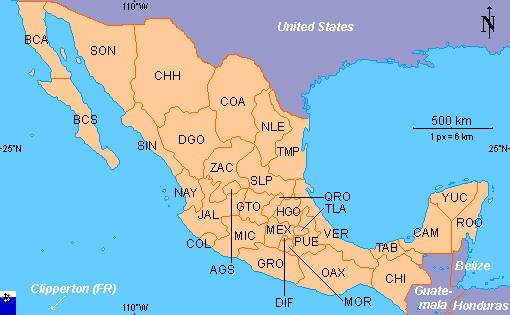
IT WAS in a valley somewhere in central Mexico at least 5,000 years ago that maize (corn, to Americans) was first domesticated. Many Mexicans see the crop as part of their national patrimony, much as potatoes are to Peruvians or pasta is to Italians. So it is understandable that when on January 1st import tariffs on maize (along with beans, sugar and milk) were finally eliminated, many Mexicans felt a twinge of regret. The end of the tariffs marked the culmination of a 14-year transition to free trade between Mexico, the United States and Canada under the North American Free-Trade Agreement (NAFTA).
Nevertheless many Mexicans are no more enthusiastic about the treaty than Americans are. Opposition politicians, from both the centre-left Party of the Democratic Revolution and the formerly ruling Institutional Revolutionary Party, argue that NAFTA should be re-negotiated. Peasant farmers are to stage a demonstration in Mexico City on January 31st to which they hope to attract 100,000 people (although, as is customary, many of these will be bused in and paid to attend).
In practice, little changed on January 1st. Tariffs on maize have gradually been dropping since 1994 (when they stood at over 200%). Nearly all maize imports already entered tariff-free under government import quotas. Most of the imports are of yellow corn, used to feed livestock, while Mexico produces mainly white corn. Even so, without cheap imports Mexicans would pay more for their daily tortillas. They were reminded of that a year ago when a temporary shortfall in imports combined with distribution snags to cause the price of tortillas to soar.
Read Full Article
Importance: Once again, Mexico is facing problems with poor competition leading to the development of monopolies. Though free trade is ultimately beneficial, small scale farmers are going to have trouble when prices of maize fall.
GRADE THIS POST!!
Nevertheless many Mexicans are no more enthusiastic about the treaty than Americans are. Opposition politicians, from both the centre-left Party of the Democratic Revolution and the formerly ruling Institutional Revolutionary Party, argue that NAFTA should be re-negotiated. Peasant farmers are to stage a demonstration in Mexico City on January 31st to which they hope to attract 100,000 people (although, as is customary, many of these will be bused in and paid to attend).
In practice, little changed on January 1st. Tariffs on maize have gradually been dropping since 1994 (when they stood at over 200%). Nearly all maize imports already entered tariff-free under government import quotas. Most of the imports are of yellow corn, used to feed livestock, while Mexico produces mainly white corn. Even so, without cheap imports Mexicans would pay more for their daily tortillas. They were reminded of that a year ago when a temporary shortfall in imports combined with distribution snags to cause the price of tortillas to soar.
Read Full Article
Importance: Once again, Mexico is facing problems with poor competition leading to the development of monopolies. Though free trade is ultimately beneficial, small scale farmers are going to have trouble when prices of maize fall.
GRADE THIS POST!!






No comments:
Post a Comment